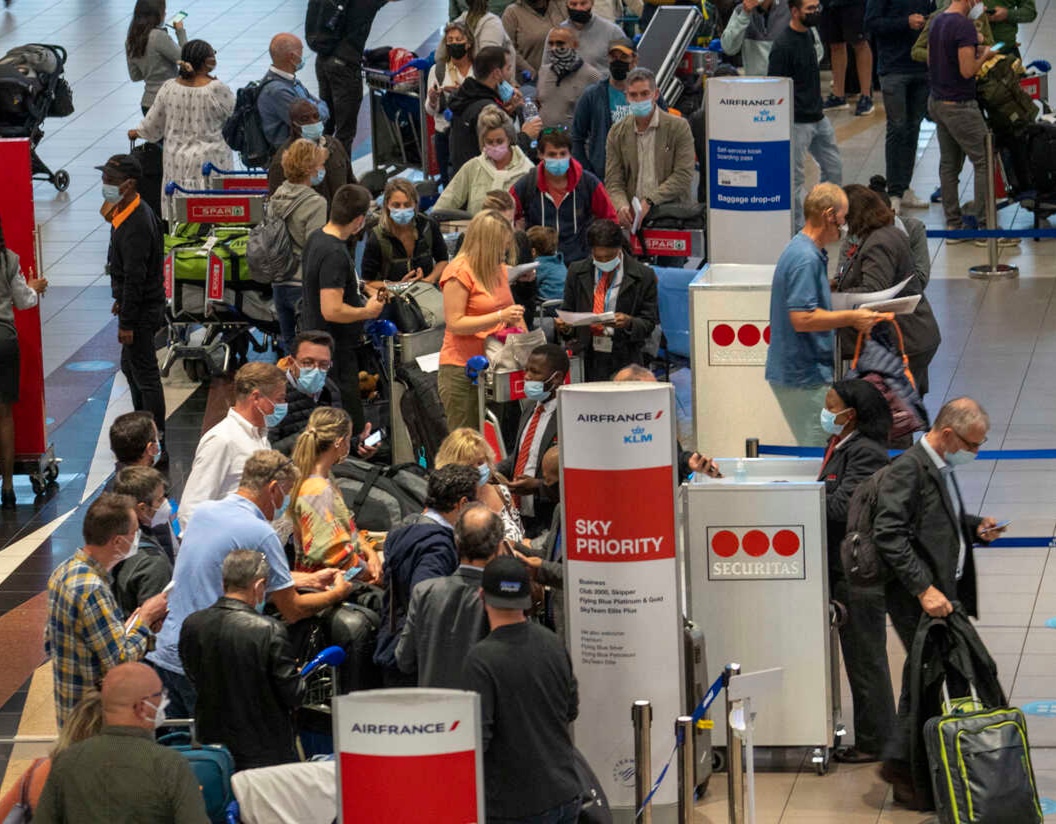Netflix Is Going To Release Documentary And Series On Youtube
- 18-04-2020
- News

The world has not yet reopened properly, economies are still struggling to get back on track. Speculations show that economies might recover by the end of 2022. Meanwhile, the pop-up of a new virus to which WHO has tagged as ‘variant of concern’ has raised eyebrows and caused fear and tension among people.
What is the new variant?
A new variant of Covid-19 Virus found in Botswana is named as Omicron. This variant has lots of mutations, high transferability and ineffectiveness towards the present vaccine. Due to these reasons, WHO has tagged it as ‘variant of concern’. Also, it has more than 30 spike mutations which is double in number than the number of delta variants. After getting more samples of omicron, it is suspected to have more than 50 variations of spike protein. WHO has previously given following 5 variants of Corona as ‘variant of concern’-
Alpha (B.1.1.7) – emerged in Britain in 2020
Beta (B.1.351) - Emerged in South Africa
Gamma (P.1) - emerged in Brazil in 2020
Delta (B.1.617.2) - emerged in India in late 2020
Omicron (B.1.1.529) - identified in South Africa now
What is the controversy behind the name ‘Omicron’?
Botswana is the first country to report this new variant of SARS-CoV-2. The 15th numeral in Greek language is chosen as the name of the new mutation of Covid-19, so it is named ‘Omicron’. The scientific term is defined under the Pangolin (Greek word) or Pango system to categorize the variant and track the lineage of mutations. In previous year, WHO has decided to use the Greek alphabet to name the transmissible upcoming new variants of Coronavirus. So, beginning from Alpha variant and then the deadly Delta variant to the latest named variant was ‘Mu’ variant of Coronavirus. Now, according to the serial, the new variant should have been named Xi or Nu. But it has not been named according to the serial. People have alleged that WHO is working under pressure from China and ‘Xi’ has been skipped due to China’s president Xi Jinping.
WHO has clarified the controversy by putting forth its explanation that the word ‘Nu’ could confuse people as “New”, so people might confuse it as a new virus and ‘Xi’ is prevalently used in names of Chinese people. So, we have skipped the two letters because we don’t want any cultural backlash.
Why is this variant suspected to be very dangerous?
An alteration in the genetic material (the genome) of a cell is called mutation, which means fundamentals remain the same but a change occurs in the spike protein. The genetic information gets stored in DNA or RNA. So if any new information gets stored in a virus that alters its structure and is more or less permanent, it is called the ‘mutation’. Viruses carry a genetic code in the form of nucleic acid. The alterations of a virus are corrected in DNA with
help of enzymes, but in a RNA-based virus, alterations are assimilated which gives a new variant of that virus. Mutations occur in a virus because of its transmission in people. A new variant can be stronger or weaker than its previous version.
Covid-19 is a RNA virus and has mutated more than 50 times by now. Its two variants- R203K and G204R are helping the virus to replicate faster. H655Y, N679K, P681H are the three variants which will be more helpful in entering the human body.
Also, as per the latest information, the RT-PCR test which detects the virus with the gene ’S’ is not present in the new variant. So, the RT-PCR test will not be effective in this case. We have to find new methods to detect it.
Has the Indian government taken any steps to stop ‘omicron’ in India?
The new variant was first detected on 9th November and firstly it was reported to WHO on 24th November. It is spreading very fast in Africa because only 24% of South Africa is vaccinated by now.
Due to shortage of samples for now, much information is yet to be researched and disclosed about the virus. So, its epidemiological and clinical correlation is not fully established yet.
Although there has not been any reported case of omicron variant in India, the government cannot take any risk this time. In a high-level meeting headed by PM Modi, the government has decided to pay special precautions at the airports. Government has ordered to carefully test the passengers coming from countries like South Africa, Israel, and Botswana where ‘Omicron’ has been detected.
What can we do for now?
We can take precautions like wearing masks in public places, using sanitizers and social distancing. We also need to avoid going to public places unnecessarily. Taking these safety measures can help us in tackling the new variant too.